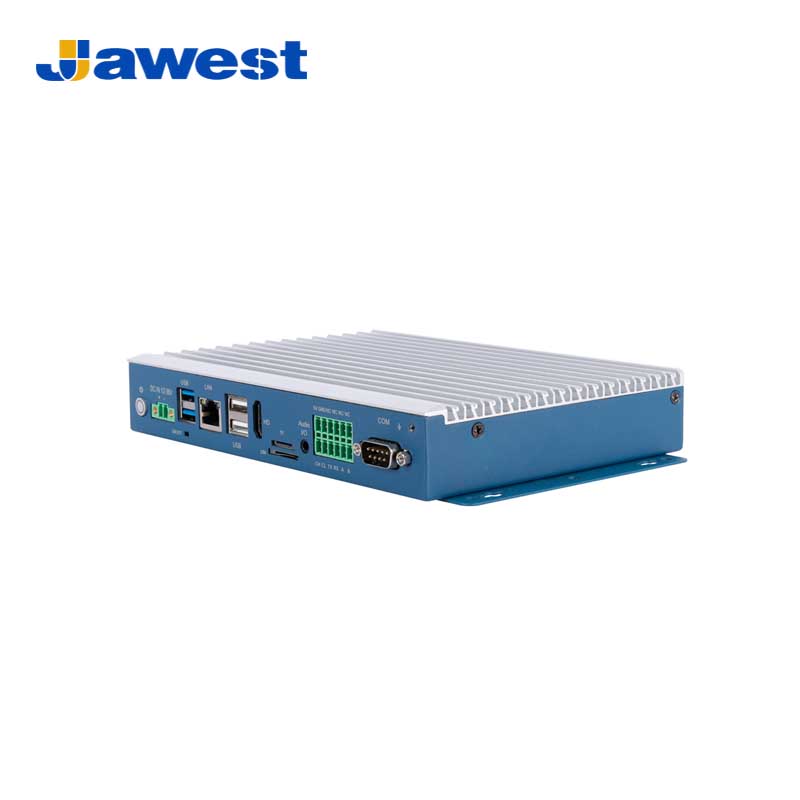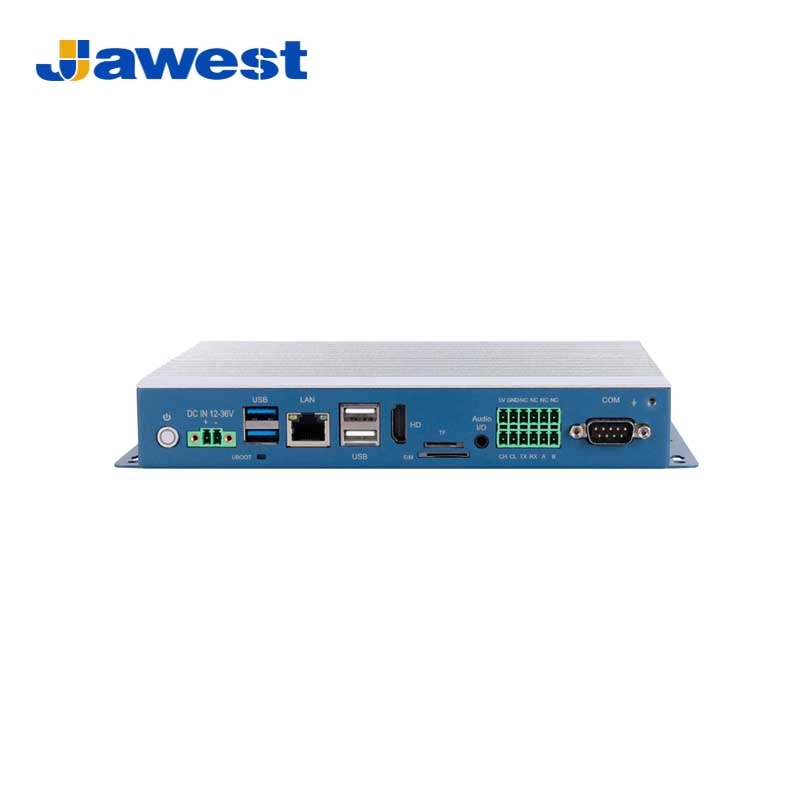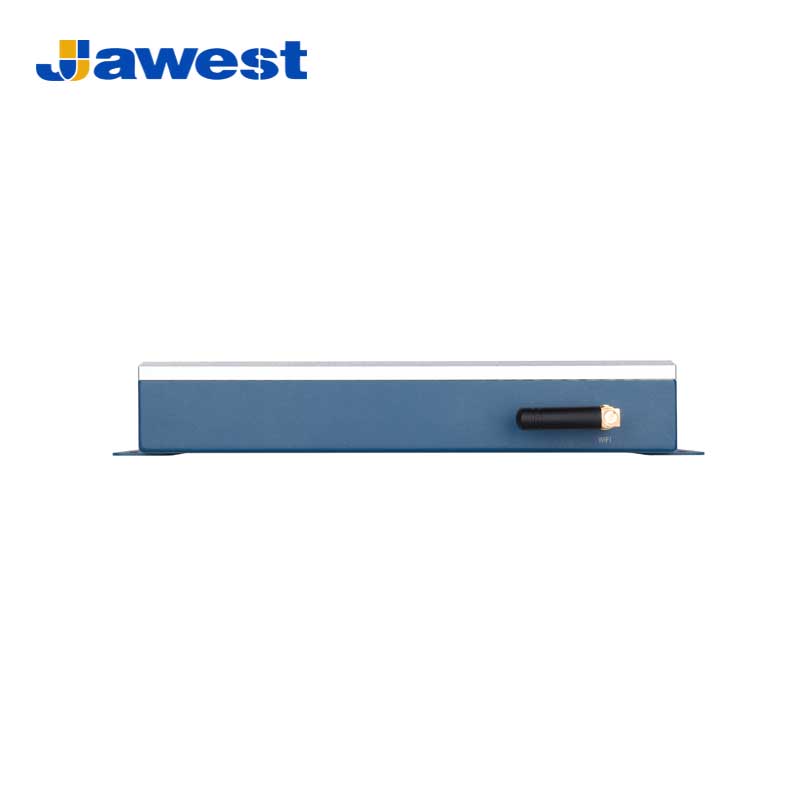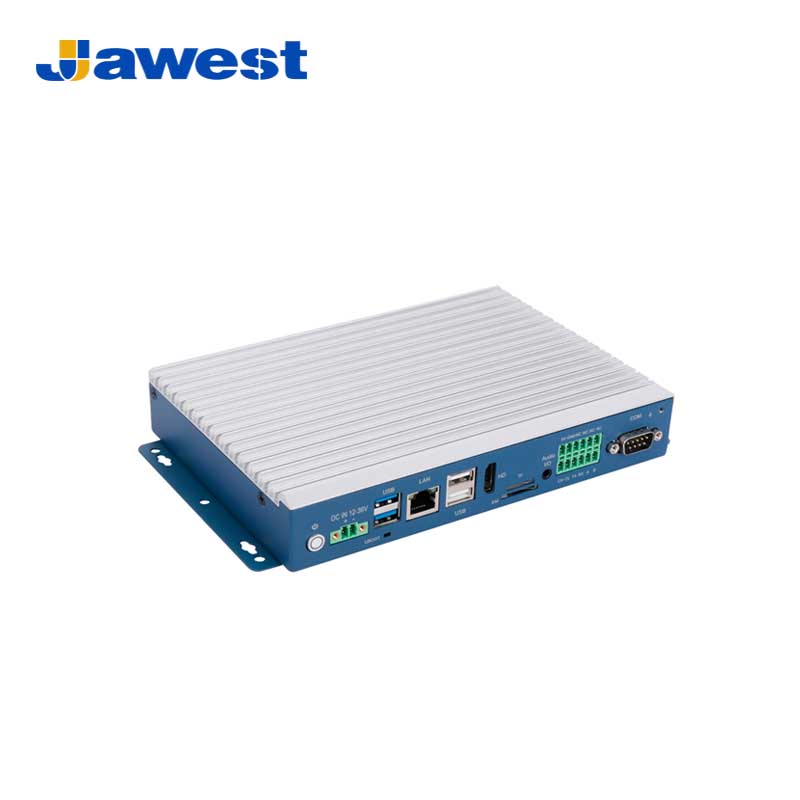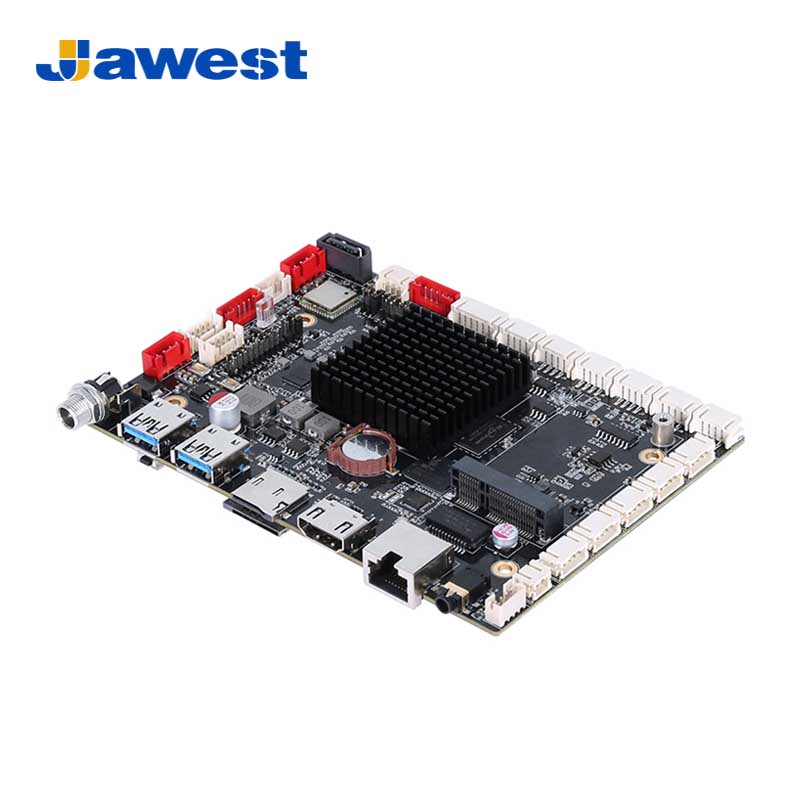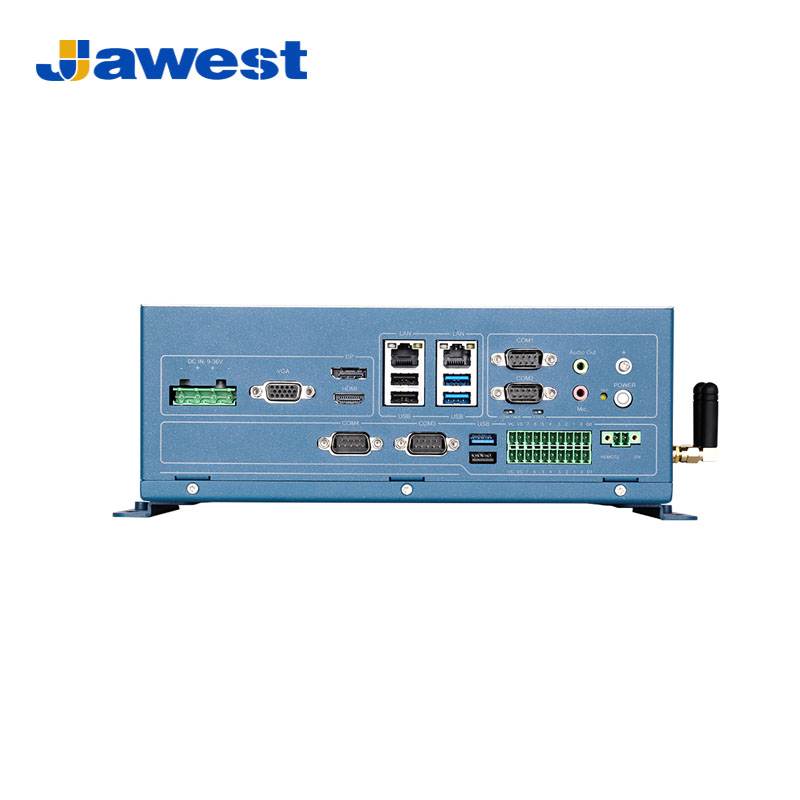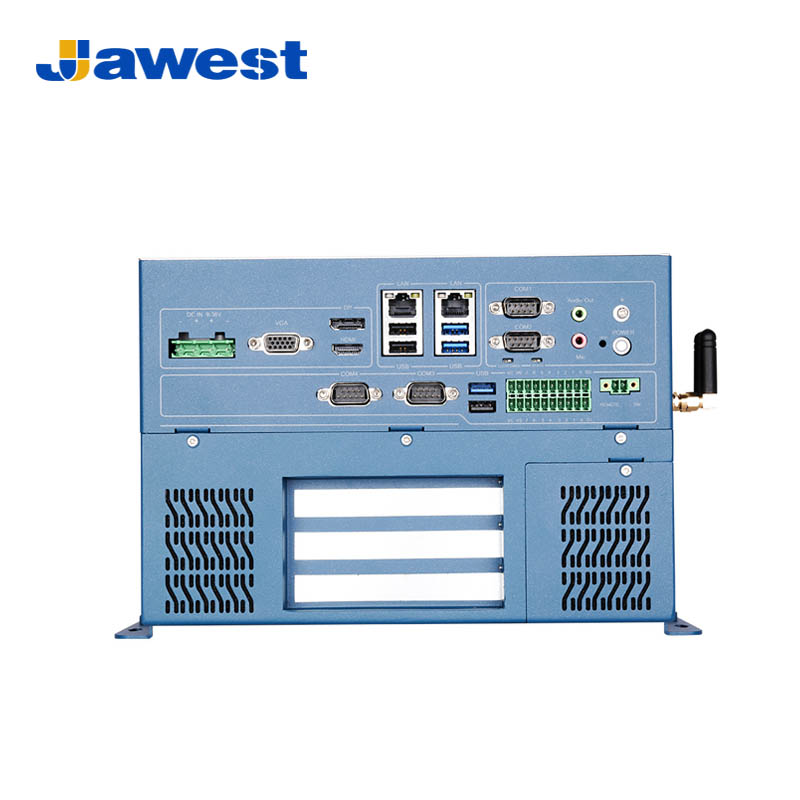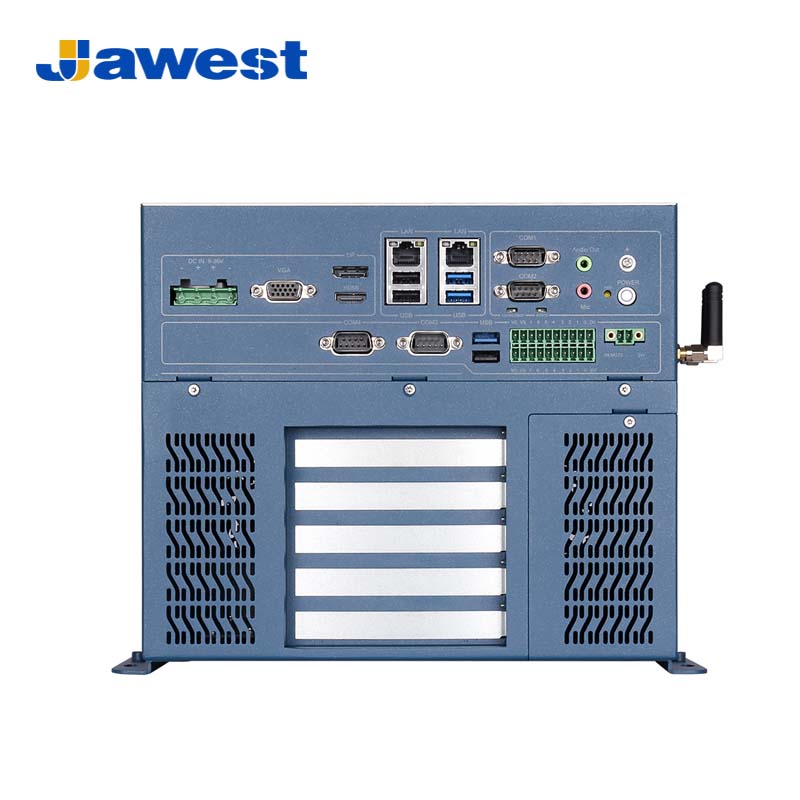Modular Industrial Rugged Computers Android 14 Compact Fanless PC 12V to 36V Wide Range DC Power Input
Model: JWS08-AIOT
Jawest modular industrial rugged computers, model JWS08-AIOT, feature compact, fanless systems built to handle harsh environments while offering cutting-edge capabilities, such as Android 14 compatibility, wide DC power input range, and high customization potential. Ideal for manufacturing, logistics, transportation, and more.
This fanless Industrial Box PC with a modular design, and wide operating temperature range is perfect for indoor or outdoor use. Comes with an Android® Operating System that supports 3rd party software. Versatile mounting capabilities can be paired with Industrial Monitors for greater flexibility.
Key features of these computers typically include:
Ruggedization: Designed to meet industrial standards for durability, such as an IP65 rating for water and dust resistance, and also features excellent shock and vibration resistance performance.
Compact form factor: These systems are often compact and lightweight, ideal for use in confined spaces or where portability is a factor.
Fanless design: By eliminating fans, these systems avoid mechanical failure points, reduce maintenance needs, and operate silently—an advantage in noise-sensitive environments.
Wide-range DC input: They support a wide range of DC power inputs (12V to 36V), making them adaptable to various power sources, including automotive and heavy machinery.
What are Modular Industrial Rugged Computers?
Modular industrial rugged computers are custom-built computing solutions designed to withstand extreme environments. Unlike standard consumer-grade PCs, these industrial-grade systems are equipped with robust features to handle high temperatures, vibrations, dust, moisture, and other challenging conditions commonly found in industrial settings. The "modular" aspect refers to the system's ability to be easily customized or expanded with various components to meet specific requirements, making them highly versatile.
Why Choose Android 14 for Industrial Rugged Computers?
Android has emerged as a dominant platform not only for smartphones and tablets but also for industrial computing. Android 14, the latest version of the operating system (OS), provides a rich ecosystem for building customized applications. Here are some reasons why Android 14 is a smart choice for industrial rugged computers:
1. Customizability and Flexibility
Android is an open-source platform, making it highly customizable. Industrial organizations can tailor the OS to meet their unique requirements, from modifying the UI/UX to integrating specific industrial applications or even controlling hardware. This flexibility ensures that Android 14 can be used across a variety of industries such as automation, monitoring, data collection, and remote management.
2. Vast App Ecosystem
Android 14 supports a wide range of applications, which can enhance industrial operations by improving everything from real-time data monitoring to predictive maintenance. The large developer community around Android means that industrial applications can be rapidly developed and adapted to meet new challenges.
3. Seamless Connectivity and Integration
Android devices are known for their robust connectivity options, which are crucial in industrial settings. With Android 14, these rugged computers can support a variety of connectivity standards such as Wi-Fi, Bluetooth, 4G/5G, and even satellite communication in remote areas. This allows seamless data sharing between devices, cloud services, and other machinery, leading to more efficient and real-time decision-making.
4. Security and Updates
Android 14 provides enhanced security features, which are important for industrial systems that need to be protected from cyber threats. The OS includes improvements in encryption, authentication, and secure boot, ensuring that the rugged computers remain protected from vulnerabilities. Furthermore, with Google's regular updates, Android 14 devices stay up-to-date with the latest security patches.
The Power of 12V to 36V DC Input Range
One of the standout features of modular industrial rugged computers is their wide power input range, typically from 12V to 36V DC. This broad range makes these systems highly adaptable to various power sources across different industries. Here are the key benefits of such flexibility:
1. Versatility Across Applications
The 12V to 36V DC power input ensures that the system can work seamlessly across a variety of environments, including vehicles, outdoor machinery, factory automation, and more. For example, in a transportation application, these rugged PCs can be powered directly from the vehicle’s electrical system, which often operates on a 12V or 24V DC power supply.
2. Stable Performance in Challenging Environments
Many industrial power sources fluctuate in voltage, especially in environments where equipment is frequently moved or subjected to mechanical stress. The wide DC input range allows the rugged computers to tolerate these variations without affecting performance or stability, ensuring reliable operation even in unpredictable conditions.
3. Reduced Need for External Power Conversion
With the ability to accept a wide range of input voltages, these fanless PCs can directly integrate with systems without the need for external power converters or adapters. This simplifies system design, reduces the overall cost, and minimizes the risk of failure from additional components.
Compact Fanless Design for Industrial Environments
The compact, fanless design is another crucial feature of modular rugged computers. Traditional fan-based cooling systems are prone to mechanical failure over time, especially in high-vibration environments like factories, warehouses, or outdoor locations. By eliminating the fan, rugged computers can operate more efficiently, require less maintenance, and have a longer lifespan.
The fanless design also contributes to a smaller footprint, allowing these systems to be installed in tight spaces without compromising on performance. Whether mounted on machinery, inside control panels, or used as portable devices, these compact systems can easily fit into existing industrial infrastructures.




